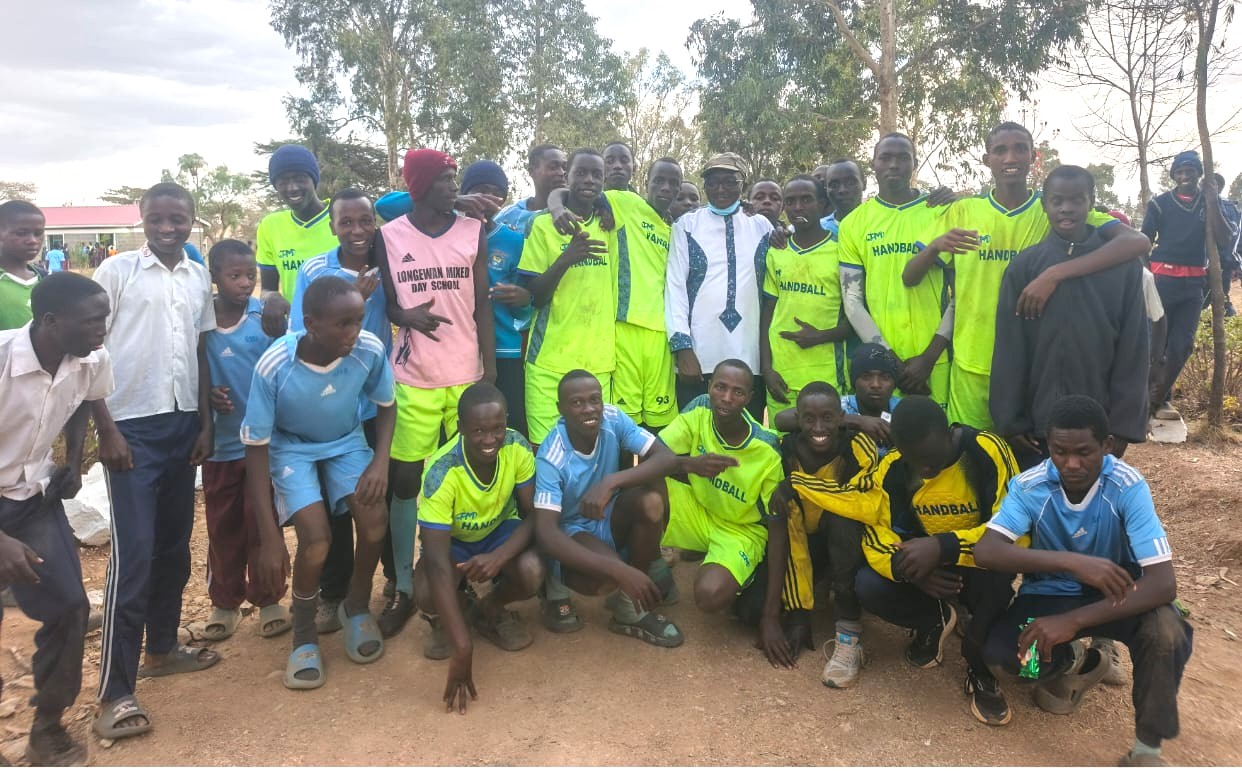Nothing can beat people who are mission-driven. Nothing. Prof. Laban Ayiro’s story exemplifies this. Here it is.
When Professor Laban Ayiro arrived at Lubinu Boys High School in 1993, he found a typical rural school weighed down by mediocrity, indiscipline, and low academic expectations. Nestled in the western region of Kenya, Lubinu was a school known more for its challenges than its successes. It was the kind of school where hope was in short supply and achievement seemed reserved for the more prominent institutions in the country. But Ayiro did not see a failing school. He saw potential. He saw what could happen if someone cared enough, worked hard enough, and believed deeply enough in the transformative power of education. And so began a journey of one of the most remarkable school turnarounds in the country’s history.
At the time Ayiro took over, Lubinu Boys was ranked 1,210 nationally in the Kenya Certificate of Secondary Education (KCSE) exams. That number alone spoke volumes. It told the story of a school that had been forgotten, of students whose dreams were suffocating in an environment that neither inspired nor demanded excellence. The school, like many others in rural Kenya, suffered from lack of motivation among staff, poor discipline among students, and a community that had largely resigned to fate. But Ayiro’s leadership would change all that.
One of the most defining characteristics of Prof. Ayiro was his deep sense of mission. He didn’t approach Lubinu as just another headteacher posting. He approached it as a calling. Drawing inspiration from his own humble background and strong Christian faith, he committed himself wholly to the task ahead. His leadership was servant-based – marked by emotional intelligence, spiritual grounding, and an unwavering belief in the potential of every student under his care. He often described himself as someone tending to a skinny cow – not ashamed of the state he found it in, but determined to feed it, love it, and watch it grow into a source of pride.
ALSO READ;
MoE on spot as Audit exposes Ksh540 million textbook scandal
Transformation, however, did not come through wishful thinking. It came through relentless hard work, strategic thinking, and a culture shift. Ayiro quickly instituted discipline across the board. He restored order in the classrooms, redefined expectations for both students and teachers and introduced structures that held everyone accountable. He emphasized excellence, not as a distant dream but as a lived daily practice. He worked closely with teachers, encouraging them to rise above mediocrity and believe in the work they were doing. He challenged them to teach with passion and purpose, to see themselves not as mere employees of the Teachers Service Commission, but as builders of future leaders.
His communication style was also a key part of his success. He spoke with clarity, vision, and conviction. His words uplifted. He knew how to paint pictures of what was possible, even when reality suggested otherwise. He invoked the imagery of Ezekiel’s Valley of Dry Bones, encouraging students and teachers alike to see life where there appeared to be only ruin. He told them that they were not condemned to fail, that they too could compete with the best schools in Kenya and emerge victorious. And slowly, the students began to believe him. The teachers began to believe in themselves. The community began to rally behind the school. And the results began to show.
By the end of 1994, Lubinu Boys had climbed the national KCSE rankings from position 1,210 to position 56. That kind of movement was unheard of. It was not just a jump in numbers; it was a cultural shift, a revolution in mindset, and a powerful testament to what leadership can achieve. People began to take notice. Education officials, other headteachers, parents, and policy makers—all wanted to understand how such a change had occurred in such a short time. The secret, as Ayiro later explained, lay not in new buildings or more funding, but in people: inspired, committed, and mission-driven people.
So powerful was his impact at Lubinu that he was later handpicked to become the founding principal of Sunshine Secondary School in Nairobi, a school initiated by President Daniel arap Moi. At Sunshine, Ayiro replicated the same philosophy – build systems, inspire people, hold high standards, and above all, lead with humility and integrity. But for those who knew the Lubinu story, it was clear that the roots of his remarkable education leadership had taken shape in that small rural school in Mumias.
ALSO READ;
MP pledges support to education to improve academic standards in Kisii
Even today, decades later, the legacy of his work at Lubinu lives on. A dormitory at the school is named in his honor: Ayiro Dorm. It is a quiet but powerful reminder to every student who walks through those gates that greatness does not come from privilege or perfect circumstances. It comes from purpose, belief, and sacrifice. Prof. Ayiro didn’t give the school new buildings or flashy programs. What he gave them was vision. He helped them see what they could become. He lit a fire of ambition that continues to burn even today.
His story at Lubinu is not just about one man’s success. It is a blueprint for what is possible in the Kenyan education system. It shows that with the right leadership, even the most forgotten schools can rise. It affirms that students from poor backgrounds are not doomed to failure. It challenges teachers to lead from the front, and reminds education leaders that transformation is not about resources – it is about mindset, heart, and vision.
Professor Ayiro’s transformation of Lubinu Boys is more than a historical event. It is a parable of hope in an era when the Kenyan education system is grappling with equity, quality, and leadership crises. It stands as proof that true leadership doesn’t wait for perfect conditions. It acts. It inspires. It transforms.
Ashford teaches English and Literature in Gatundu North Sub County and served as Dean of Studies.
By Ashford Kimani
You can also follow our social media pages on Twitter: Education News KE and Facebook: Education News Newspaper for timely updates.
>>> Click here to stay up-to-date with trending regional stories
>>> Click here to read more informed opinions on the country’s education landscape






